January 16
Our flight to Yangon is delayed an hour, and we have some difficulty finding Dorothy and Hillary, but if this is our major travel snafu on the trip, we are in very good shape. (I have, and probably will continue to refer to Dorothy as “Dotty,” which is the name friends call her in the US. because of the English influence in Myanmar, though, “dotty” has the connotation of “crazy,” so Dotty goes by Dorothy over here.). A driver and representative of the travel company and Hillary accompany us to our home in Yangon, the Governor’s Residence. This is an absolutely delightful place with gardens, swimming pool, a lot of beautiful wood and artwork around the place, which we pass en route to our very spacious, comfortable and nicely appointed garden view room. Because of the increased popularity of the country, it took our travel agent, Thiri, some time and effort to land us a place in the Governor’s Residence, but we are very happy that she was successful, as it will be a most comfortable home for us in our two stays here.
Instead of having lunch at the hotel, Hillary suggested we go to a local Burmese restaurant, called Feel. This is a very bustling place where food is laid out, people look at choices and waiters bring the food to the table. I was not hungry, but Carol enjoyed lunch.
After lunch, we were driven to Proximity Design, a place where Hillary works. This is a very interesting operation, founded by an American MBA, Jim Taylor, and his Burmese American wife, Debbie. We spend a couple hours there and have a chance to talk with Jim briefly. He says that farmers have been hurting because of government policies that keep the currency value artificially high, thus hurting the price of rice, but helping the gem industry in which the military and its supporters have large interests. Because of the trips that Carol and I have made to rural villages in Ghana, we are particularly interested to learn about this operation.
Here is Hillary at Proximity:
Here is a short description of the work that proximity does.
Proximity Designs is a non-profit social venture working to reduce poverty and hunger for tens of thousands of rural families in Myanmar since 2004.
We address extreme poverty by treating the poor as customers and offering innovative and affordably designed technologies and services. Our customers are families who earn their living by farming small plots of land. There are an estimated 10 million rural households in Myanmar. Our offerings include foot-operated irrigation pumps, drip irrigation sets, water storage tanks, solar lanterns, financial services and farm advisory services.
Our eighteen different products and services are designed to dramatically reduce daily drudgery, hardship and improve household productivity and incomes by replacing time-consuming and antiquated technologies. For example, our customers replace their rope and buckets for our foot-powered irrigation pumps and typically double net seasonal cash incomes ($200-300), money they can then use to buy food, send their children to school, reinvest in their farms and more.
To date, Proximity has delivered more than 180,000 products and services to over 77,000 rural households in Myanmar.
Our model: discover. design. deliver
Drawing on human-factor research methods used by the world’s leading innovation firms, we spend countless hours observing and interviewing rural households, learning what they value, identifying root problems and most important, developing empathy that leads to lasting solutions to the problems they face.
The insights we glean from intimate exposure to customers are what drive Proximity’s on-site product design lab. Located in Yangon, our lab designs and creates products exclusively for people living in poverty in the Myanmar context.
Products are manufactured locally and reach customers through a nationwide distribution network linking independent agro-dealers, village entrepreneurs (product reps) and village-based groups. Our delivery infrastructure spans an area where 80 percent of Myanmar’s rural population lives.
Linking up to national economic growth
Proximity understands that sustainable well-being for our customers depends on a supportive macro policy environment. To that end, we’ve leveraged our extensive, on-the-ground knowledge of rural conditions, teaming up with Harvard’s Ash Center to research and analyze Myanmar’s rural economy. We’ve produced several groundbreaking reports that have helped inform key policy makers in Myanmar.
How we measure our impact
We have a dedicated team within Proximity that comprehensively assesses the impact of our products and services. For the past several years we have conducted an annual impact assessment from a random sample of approximately 450 rural households, measuring the income increases families have achieved as a result of using one of our products. For example, we have documented that a household can increase their net seasonal cash income two-fold, by roughly USD $300, as a result of increased productivity from using the foot pump. We have also found that this additional income was used for purchasing more food and better diets for the household, paying children’s school fees and for farm inputs for their next crop. We have also conducted economic studies in multiple rural communities to estimate the multiplier effect of increased farmer net incomes on the larger economy.
After a couple hours at Proximity, we drive to the apartment home for a doctor. Unfortunately, her daughter tells us that she has been called away to an urgent meeting and so we rescheduled for tomorrow.
We are picked up by the father, Aung Moe, and brother, Pyae Phyo Hein, of the Northwestern student from the Myanmar, Arkar Hein (by the way, I learned that the Burmese have no surnames, so, though we’ve called him “Arkar” we should have been calling him “Arkar Hein”), who Carol and I have gotten to know in Evanston. His father owns a shrimp processing operation on the Bay of Bengal, near Bangladesh, an area that has experienced ethnic difficulties. He sells mainly to Japan, since sales to the West were cut off by trade prohibitions for many years. China, he says, wants volume, not quality, but Japan is willing to pay for quality. Aung Moe confirms Jim’s views that government currency policies impede sales.
We have tea with Arkar’s parents and family. His mother, Mu Mu Shein, is lovely and gracious, but speaks no English. Pyae Phyo Hein is finishing his sixth year in medical school (a resident), and thinks he may go into pediatrics. His lively, well-traveled grandfather, who is 84, and his very quiet grandmother, who along with Aung Moe’s two younger brothers and their families, live with them, join us. His grandfather speaks Mandarin, used to trade beans, and speaks a little English. They give us some lovely gifts because they are grateful for our looking out for Arkar. We have brought a CD of American music, which we give to them. Aung Moe has three older sisters, one of whom lives in San Francisco and who we met, because she traveled with Arkar when he first came to Northwestern. Here’s a lousy picture of the group (sorry).
From there, we go with Hillary and Pyae Phyo Hein for sunset at Shwedagon Pagoda, the most famous site in Yangon. The pagoda dates back 1000 years, though it has been added to and altered many times. It is a very actively-used site, with many people there to worship. There are many different shrines, which we see as we circle the shrine, clockwise. It is very difficult to convey the scope of the site but some photos may at least give you some notion of this impressive, living monument.
From the pagoda, we are driven a short distance for dinner at a very nice restaurant at which Aung Moe has reserved a private room with a view of Shwedagon for us. We are joined by Dotty and her husband, Jim, along with Aung Moe’s family, minus grandparents. We are also joined by Khine Zin Thant, a graduate of Dotty’s school who is a sophomore at Vassar.
Jim is a very engaging fellow who Dotty met at Yale and who has lived here with her. He has taught at three or four universities in the area of public management, consulted with the State Department, the New York Port Authority and others. Jim as wide-ranging interests, including singing with a Russian chorus at Yale and running. He clearly has a lively intellect and a good sense of humor.
Over dinner, we talk about the changes taking place in Myanmar, the name Myanmar versus Burma and the stopping of a huge Chinese dam project, through public pressure, stoked by the newly freer press. Mutual concern about China is a strong impetus to burgeoning relations between the U S and China. Aung Moe participates actively in the discussion.
By the time we return to our hotel, we are more than ready for a shower and sleep, but I take a bit of time to download the day’s 100 photos.

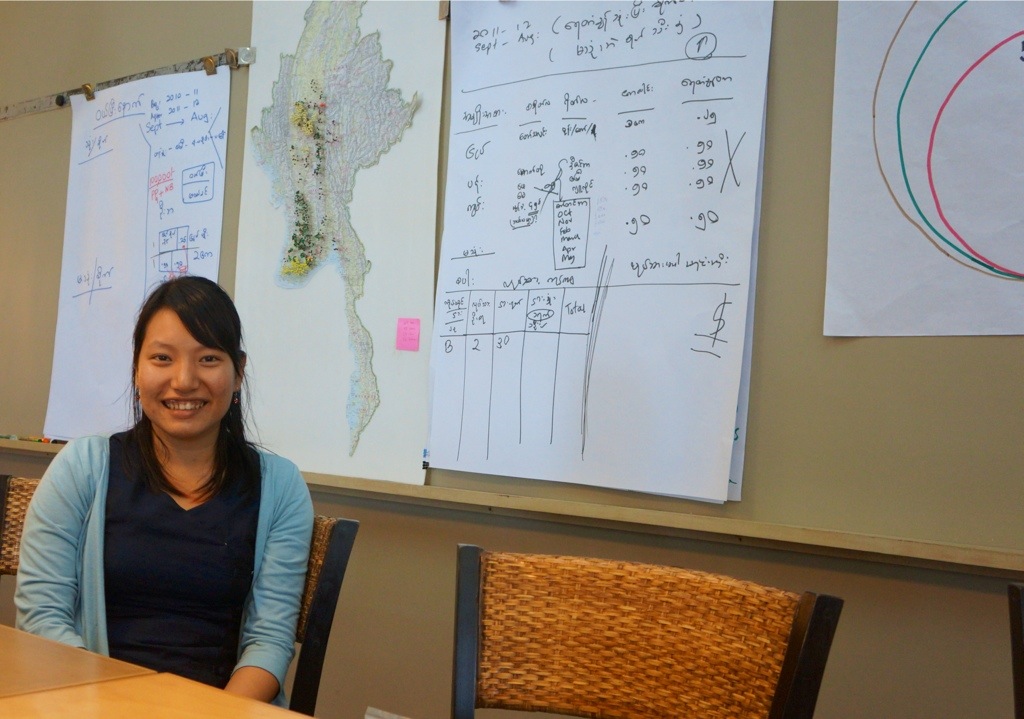
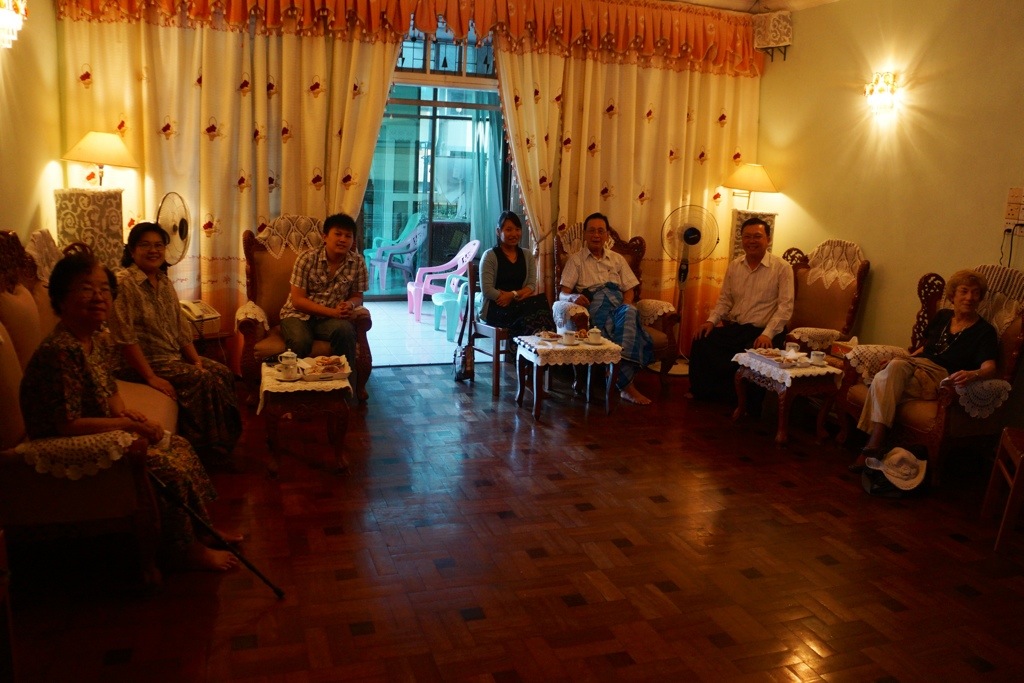
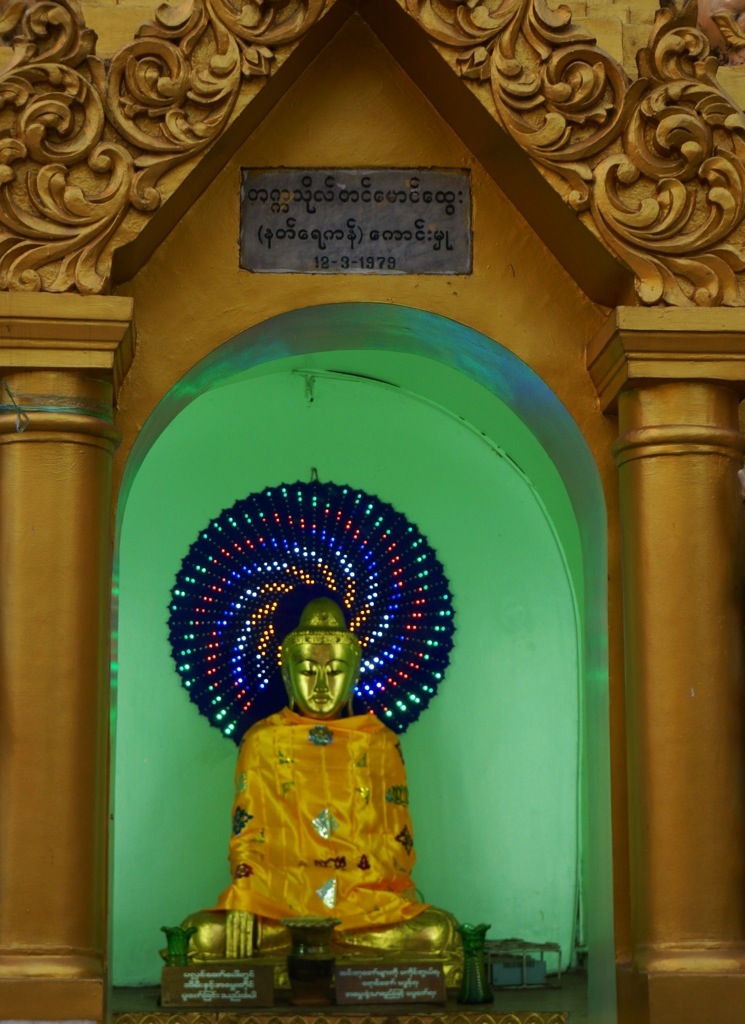
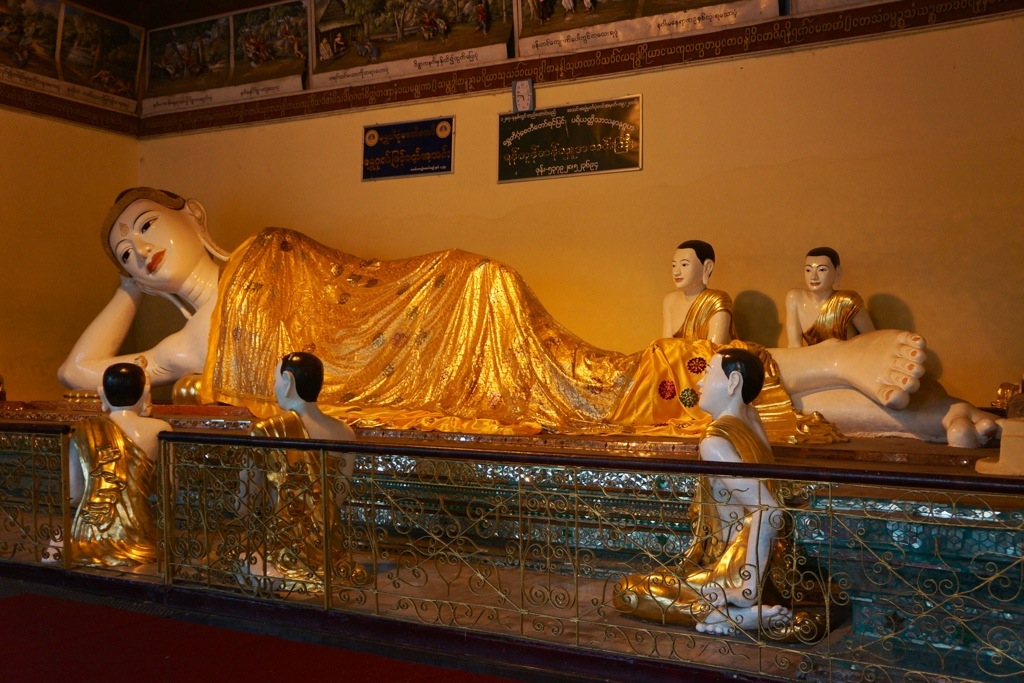
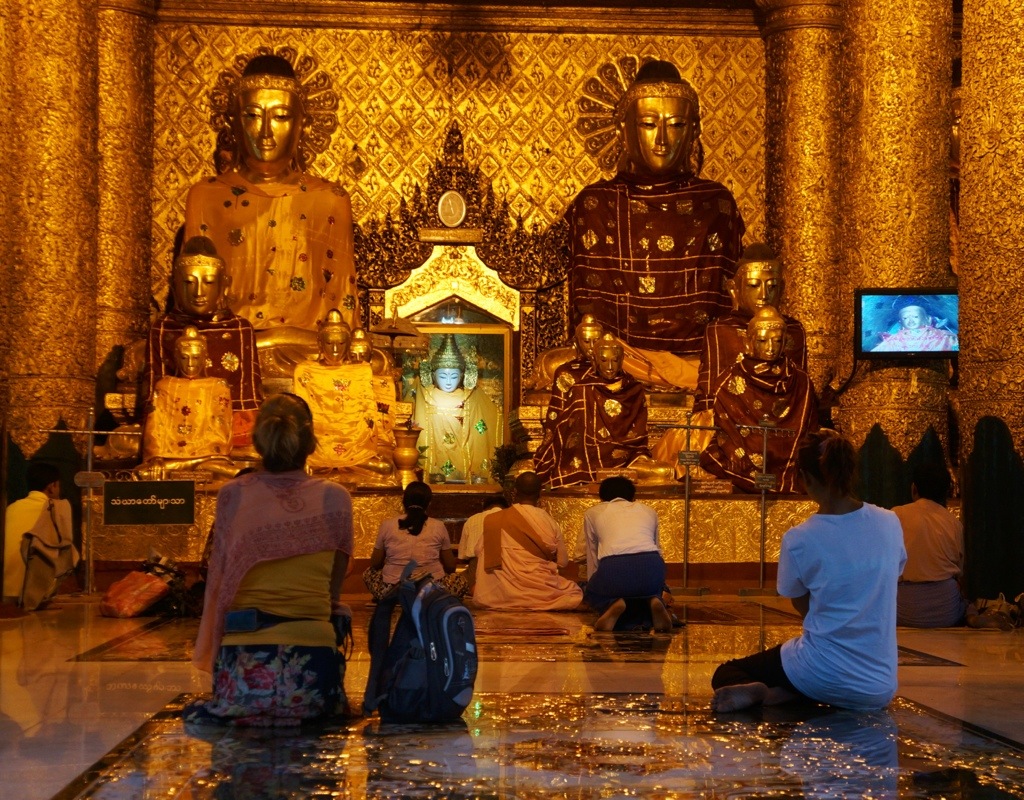
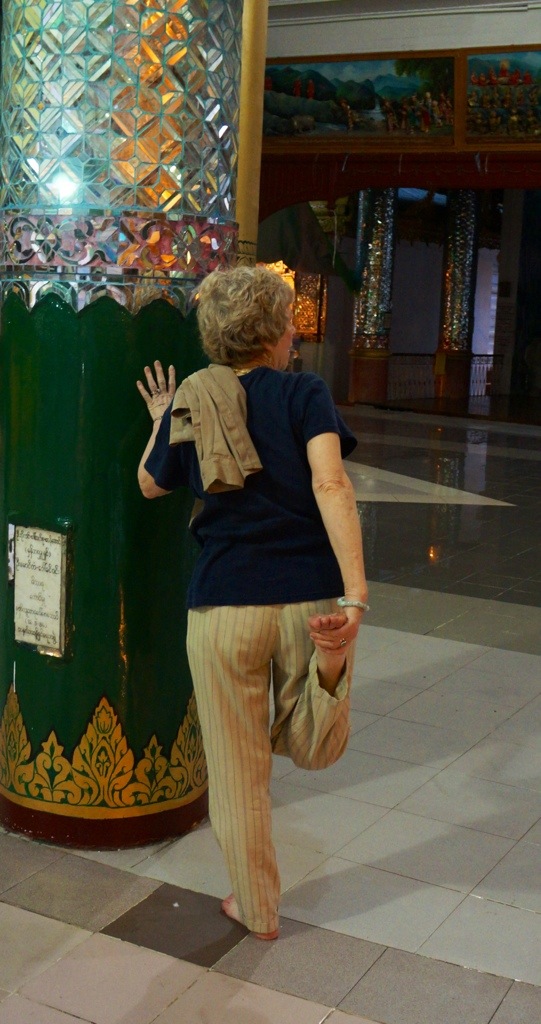


Leave a Reply